Posts in Category: Travel

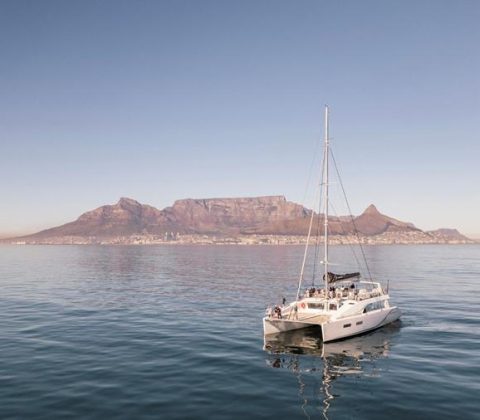
MIRAGE RIDES THE WAVES OF SUMMER FUN
DJ SUNSETS, CHRISTMAS CHEER AND A NEW YEAR’S EVE YOU WON’T FORGET!
South Africa, Cape Town, 12 November 2025: This summer, Cape Town’s iconic 76-foot catamaran, MIRAGE, is turning up the holiday vibes. From DJ-fuelled sunsets to Christmas day sparkle and a New Year’s bash at sea, MIRAGE is the ultimate floating playground for sun-chasers, music lovers, and festive spirits alike.
MIRAGE DJ SUNSETS | 16 DECEMBER TO 11 JANUARY
Long days, warm nights and that golden-hour glow – the perfect recipe for MIRAGE’s Sunset DJ Cruises. From 16 December to 11 January, expect live DJ sets, cool cocktails, and Cape Town’s most photogenic sunsets over the Atlantic. Add snacks and pizzas straight from the galley, and you’ve got yourself a summer state of mind.
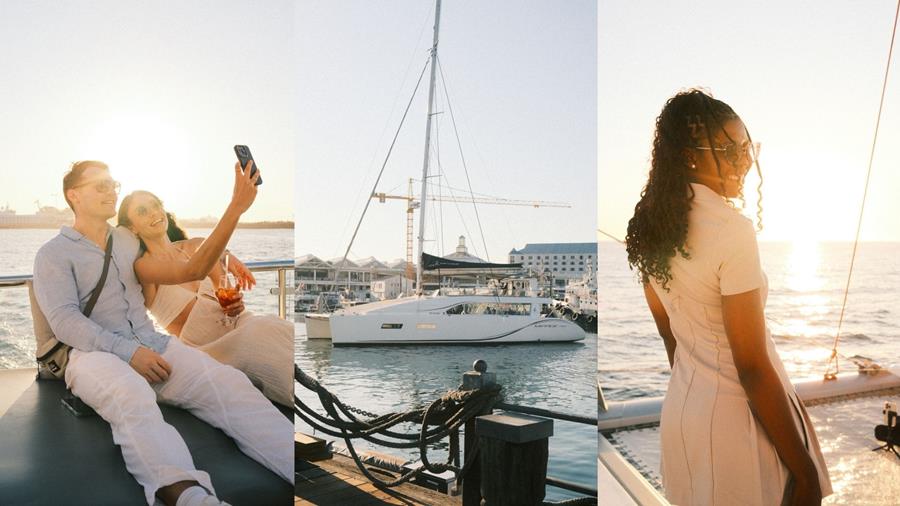
CHRISTMAS CRUISES | 24 TO 26 DECEMBER
It’s Christmas, but make it nautical. Over the festive days of 24, 25 and 26 December, MIRAGE becomes Santa’s seaside hangout. Think face-painting elves, holiday beats, bubbles for the grown-ups, and pure joy for all ages – all with the Atlantic sparkling around you.
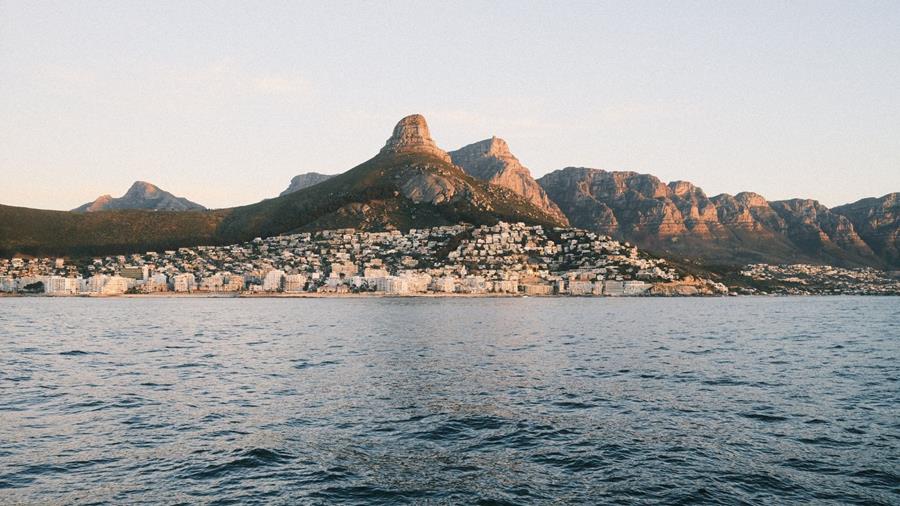
NEW YEAR’S EVE STARLIT SAIL | 31 DECEMBER
When it comes to saying adieu to 2025, there’s no better place to do it than sailing along Cape Town’s Atlantic Seaboard. The MIRAGE New Year’s Eve Cruise delivers front-row seats to Cape Town’s midnight fireworks, a dance floor under the stars, and a bar stocked with bubbles. The skyline twinkles, the music plays, and the good times roll well past midnight.
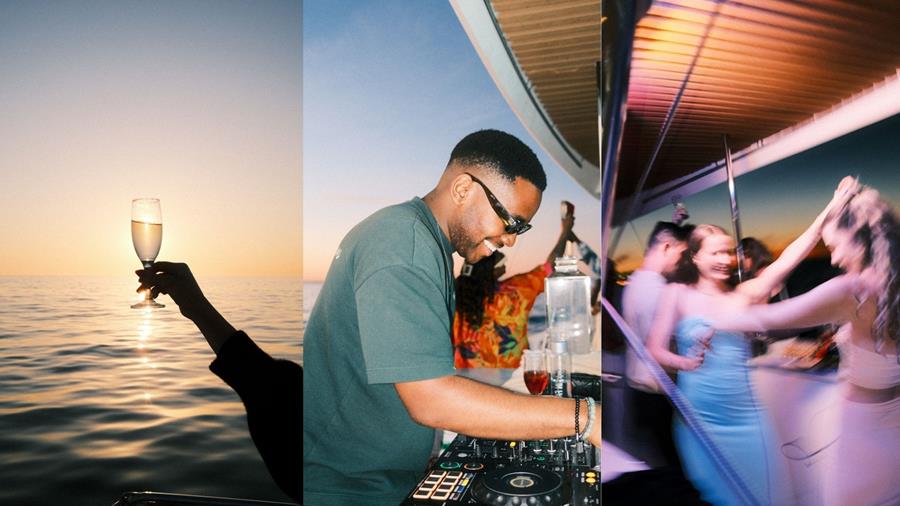
Onboard, you’ll find a full-service bar shaking up signature cocktails, pouring premium wines, whiskies and beers on tap – plus piping hot pizzas and snack platters from the galley.
MIRAGE sails daily at 11am, 1pm, 3pm; priced at R450 per person (children under 15 sail at R225 per child). The daily sunset sail is priced at R650 per person. The MIRAGE New Year’s Eve cruise is priced at R3500 per person.
Bookings are open at www.miragecatamaran.com. Please pre-order food items when booking to ensure smooth sailing.


ALL ABOARD! MI CASA’S FRIENDSHIP CRUISE SETS SAIL IN APRIL 2026
Cape Town, South Africa – After a sold-out 2025 voyage, Friendship Cruise by Mi Casa presented by Heart FM is back — bigger, brighter, and ready to set sail once again from Cape Town to the Atlantic from 14–17 April 2026 aboard the magnificent MSC Musica.
This unforgettable three-night experience promises a journey filled with music, laughter, connection, and the pure joy of friendship. Curated by multi-award-winning Mi Casa, the 2026 edition will once again unite some of South Africa’s most talented artists, DJs, and comedians — delivering an unmatched weekend of entertainment at sea.
The 2026 lineup brings back Mi Casa and friends – ensuring every moment on board is alive with rhythm, energy, and connection.
“Friendship Cruise is more than just a getaway – it’s a celebration of togetherness,” says JSomething of Mi Casa. “We wanted to create a space where people from all walks of life can dance, laugh, connect, and make memories that last long after we return to shore. 2026 is going to be something truly special.”
From sunset sessions on deck to themed parties, gourmet dining, comedy showcases, and spontaneous moments of joy – the Friendship Cruise Experience is a one-of-a-kind journey that blends luxury, music, food, and connection in a way that only Mi Casa can deliver.
Guests will enjoy the world-class hospitality of MSC Opera, complete with elegant cabins, multiple restaurants, bars, pools, theatres, spas, and lounges – offering the perfect balance between high-energy fun and laid-back indulgence.
Whether you’re sailing with friends, family, or coming solo to make new connections -this cruise is designed to remind you what life’s about: good vibes, great people, and unforgettable moments at sea.
Cabin Prices start from R7,601 per person. (Subject to availability. Limited cabins remain.)
Secure your spot with just a R3000 deposit and balance payable 75 prior to departure.
Don’t miss the boat. BOOK HERE
Friendship Cruise by Mi Casa presented by Heart


Blok marks its 21st development with ELEVENONB
Transforming a long-vacant corner into a new chapter for Cape Town’s West City.

Cape Town, 23 October 2025 | Cape Town property developer, Blok is going back to the city, unveiling its 21st development, ELEVENONB, expanding its passion for urban living into Cape Town’s West City.
Located on the corner of Buiten and Loop Street, the site has stood vacant for years, a gap in the urban fabric of the West City that now becomes an anchor for renewal. The commercial and residential use development reimagines this blank canvas as a place for connection.
“Every Blok development is a reflection of its neighbourhood,” says Jacques van Embden, CEO of Blok. “With ELEVENONB, we wanted to contribute meaningfully to the ongoing evolution of the city centre, not by building something that closes itself off, but by creating a building that opens itself to the streets, the people, and the energy of the city.”
ELEVENONB represents Blok’s first development in the West City, an area spanning approximately 286 000m² (about 7.4% of Cape Town’s Central Business District) and is surrounded by some of the city’s most recognisable neighbourhoods: Bo-Kaap to the northwest, Tamboerskloof and Gardens to the south and southeast, and the City Bowl to the east.
Designed around the principles of a 15-minute city, ELEVENONB encourages residents to live, work, and play. Within walking distance is Kloof, Bree, and Long Streets, streets known for their restaurants, art galleries, and independent stores. Not forgetting the ever-growing offerings on Loop Street. The development restores and integrates a historic façade and the heritage-rich Orphan Lane, stitching old and new together through architecture that invites public engagement.
ELEVENONB comprises 150 apartments, with prices starting at R1 795 000:
- 26 Compact Studios
- 44 Studios
- 34 One-bedroom Apartments
- 31 Two-bedroom Apartments
- 1 Three-bedroom Apartment
- 4 Penthouses

Ground floor spaces are dedicated to shops, co-working, and community interaction, with amenities including a privately-operated gym, laundry facilities, 24/7 security, a concierge and building manager (provided by Fluent), as well as back-up power for shared areas.
While ELEVENONB officially launches on 23 October, interested buyers will have the opportunity to view all apartments online and create a shortlist of their favourites on Thursday 6 November 2025, ahead of sales going live on Tuesday 11 November 2025.
“This part of the city has been waiting for a new story to be written,” adds Troy Squires, Head of Marketing at Blok. “ELEVENONB represents our vision to make cities amazing places to live, and to think bigger than our buildings. We consider the precinct, the neighbourhood and the city. It’s about how we live, how we share spaces, and how we shape the future of urban living.”
ELEVENONB is open to opportunities. Open to the people. Open to you. Open to the city.
With ELEVENONB, Blok celebrates more than a decade of redefining urban living, one building, one neighbourhood, and one city at a time.


THE LIVING JOURNEY COLLECTION MARKS TEN YEARS OF SOUTH AFRICAN HOSPITALITY WITH THE ACQUISITION OF MAJEKA HOUSE BOUTIQUE HOTEL
South Africa, Cape Town, 21 October 2025; Marking a decade of quietly redefining South African hospitality, The Living Journey Collection celebrates its tenth anniversary with the acquisition of Majeka House, a landmark boutique Winelands hotel in Stellenbosch.

Majeka House Boutique Hotel
The small luxury hotel portfolio of 8 properties, all within a 2-hour drive from Cape Town, offer an experience rooted in genuine care, considered design, and a deep connection to the local environment. Founded by international hoteliers Friedrich and Lorraine Schaefer, a couple whose combined decades of experience garnered at some of the world’s most prestigious hotels inspired them to return to the true heart of hospitality, The Living Journey Collection focuses on personalised service, attention to detail, and creating meaningful memories for every guest.
Lorraine and Friedrich met in New York in the late 1980s while working in the Big Apple – Friedrich originally at The Westbury and Lorraine at Plaza Athénée in their respective early career chapters. After years of career success, the couple decided to build a collection of properties that embody their shared belief that hospitality is at its core about connecting with people, embracing local culture, and delivering consistent excellence without losing the personal touch. Their approach emphasises strong ethics, professionalism and heartfelt service, making each hotel feel warm, inviting and authentically local.

Zest Boutique Hotel
The Living Journey Collection employs a dedicated team of approximately 170 people, with a strong emphasis on a healthy staff development and career growth, about one-third of the team has been promoted internally, reflecting the company’s commitment to nurturing talent. Sustainability and responsible business practices are also central to the group’s philosophy, from supporting local artists and craftspeople in each property’s design, to implementing environmentally responsible operations. This investment in people and place ensures the hotels not only offer outstanding guest experiences but also contribute positively to their communities.
“We aim for all of our guests to experience a sense of joy, having been spoilt and well looked after; that they have shared in something special and gained extraordinary memories to share with others. Our team members are truly passionate and heartfelt; and we encourage this to be part of all that they do. This creates memories bigger than the journey itself”, comments Friedrich Schaefer, co-owner of The Living Journey Collection.

The Tree House Boutique Hotel
The Living Journey Collection consists of eight distinctive hotels, each offering its own character and charm, yet all reflecting the group’s commitment to quality, comfort, and genuine hospitality. Guests enjoy stays that combine style and warmth, offering experiences that rival the finest accommodations, without the rigidity of traditional ratings. All properties serve excellent breakfasts and light menus throughout the day, encouraging guests to explore the many world-class dining options available in the towns and communities where they are located.
Zest Boutique Hotel and The Tree House Boutique Hotel, Green Point, Cape Town
Located in Cape Town’s vibrant Green Point, these two hotels offer design-led, intimate city stays. The 14 room Zest Boutique Hotel – and the founding property of The Living Journey Collection, provides a colourful and modern experience, perfect for travellers looking to explore the city’s attractions on foot. The Tree House Boutique Hotel, with its 14 rooms, offers a cozy, urban retreat with thoughtful touches including a unique fine art collection that make guests feel at home in the heart of the city.
One Marine Drive Boutique Hotel, Hermanus
Situated along the dramatic coastline of Hermanus, One Marine Drive Boutique Hotel offers 16 rooms and suites and is an ideal address to explore the Overberg region. With sweeping views of Walker Bay, guests can easily access cliffside paths, whale watching spots, the lively artistic town centre, and the nearby Hemel-en-Aarde wine estates. The hotel combines modern style with warm, inviting spaces where visitors can relax by the pools or sip cocktails on the deck after a day of exploration.

One Marine Drive Boutique Hotel
Chapter House Boutique Hotel and Plumwood Boutique Hotel, Franschhoek
In picturesque Franschhoek, the 17-room Chapter House Boutique Hotel occupies a beautifully restored heritage building that blends old-world charm with modern comforts. Originally built in 1888 as a Mission House and thereafter the local village school, each room is unique, reflecting the town’s rich history. Nearby, the 11 room Plumwood Boutique Hotel offers guests a tranquil setting surrounded by nature, perfect for those seeking peace and understated luxury.

Chapter House Boutique Hotel

Plumwood Boutique Hotel
The Robertson Small Hotel, Robertson
Set in the sleepy town of Robertson, The Robertson Small Hotel makes for a chic countryside escape. The small luxury hotel combines Victorian elegance matched with contemporary touches across its 11 rooms and suites, which include Manor House Rooms, Stable Suites, and Pool Suites. Guests can enjoy the hotel’s spa, two pool areas, and the acclaimed Small Restaurant, which serves seasonal dishes paired with local wines. The EM Bar adds a playful touch, decorated with custom porcelain inspired by the region’s flora.
The Robertson Small Hotel
River Manor Boutique Hotel and Majeka House Boutique Hotel, Stellenbosch
Just steps from Stellenbosch town centre, the 18-room River Manor Boutique Hotel provides tranquility and character, making it a favourite for those keen to experience the tree-lined university town and nearby nature reserves and wine estates. River Manor combines classic charm with comfortable, welcoming spaces that invite guests to unwind after an inspiring day visiting art galleries, enjoying lazy lunches and wine tasting.
River Manor Boutique Hotel
Majeka House Boutique Hotel, Stellenbosch
Acquired in September of this year, Majeka House is the largest hotel in the collection. Known for its eclectic interiors, the multi-award-winning boutique hotel and spa offers a stylish Winelands experience. Now, under new ownership, Majeka House has regained its position as an outstanding choice for visitors to the Cape seeking a hidden gem that is close to iconic wine estates including Vriesenhof and the much-admired Dylan Lewis Sculpture Garden.
“We feel that each stay, each experience, each interaction forms part of a journey. We want our guests to feel part of our journey and hope that we form part of theirs”, comments Lorraine Schaefer, co-owner of The Living Journey Collection.
As custodians of The Living Journey Collection, Friedrich and Lorraine Schaefer’s shared vision has crafted an ensemble of family-owned independent hotels that each tell their own story, corralled by a golden thread of a highly motivated team who deliver consistently warm and attentive service.
Whether discovering Cape Town, the Cape Winelands or the Overberg region, guests of The Living Journey Collection can expect stays that feel special, welcoming and richly rewarding. Indeed, an authentically South African journey worth living.
The Living Journey Collection is offering an Early Bird Festive Save of 20% off your stay between 1-19 December 2025, bookable by October 31st and available throughout the eight properties – making for a great escape ahead of the holiday rush. Accommodation includes breakfast.
For more information about The Living Journey Collection, go to www.thelivingjourneycollection.co.za or follow their story via @thelivingjourneycollection.
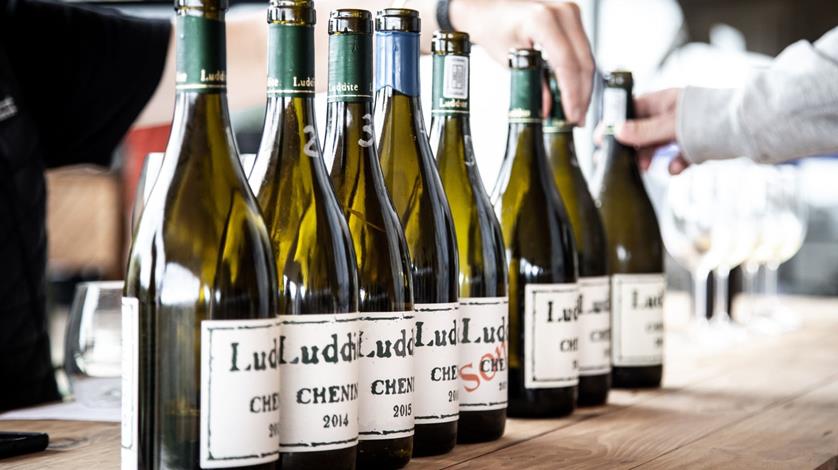
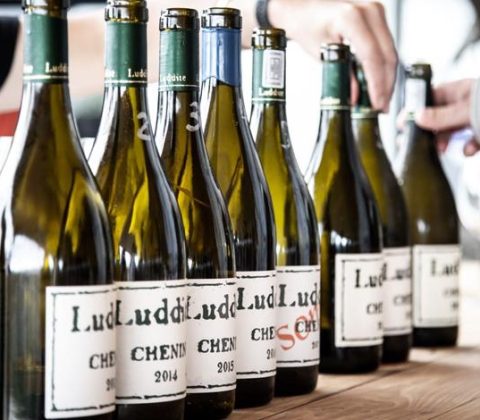
SALON BY LUKE DALE ROBERTS AND LUDDITE WINES TO HOST A SPECIAL WINE DINNER FEATURING RARE VINTAGES
Cape Town, South Africa, 26 September 2025 – Salon, Luke Dale Roberts’ fine dining restaurant, will host a one-of-a-kind wine dinner on Friday 10 October 2025, in collaboration with Luddite Wines. This exclusive event offers guests the rare opportunity to taste older vintages of Luddite’s exceptional Chenin Blanc, wines that are no longer available for purchase.

Why Luddite Chenin Blanc is Special
“Luddism reflects our belief in winemaking. Technology and mechanisation will never be a substitute for passion,” say Niels and Alice Verburg, winemakers at Luddite. Their Chenin Blanc is renowned for its depth and complexity. What makes these wines truly special is the minimal intervention approach. By using traditional, hands-off techniques and allowing the grapes to express their natural character, Luddite’s Chenin Blanc evolves over time, developing a unique balance of freshness, texture, and rich flavours. The wine undergoes skin contact during fermentation, creating a fuller mouthfeel with layers of citrus, honey, and spice. With great aging potential, Luddite’s Chenin Blanc only becomes more captivating as it matures.
This dinner presents a rare opportunity to taste older vintages like the 2016, 2018, 2020, and 2022, which are no longer available to buy. It’s an exclusive chance to experience the evolution of this distinctive wine and witness firsthand how it ages to perfection.
A Unique Tasting Experience with Luddite’s Library Wines
This is a rare opportunity for wine lovers to taste a range of Luddite Chenin Blanc vintages, all in one evening. Each wine has its own personality, from the fresh and lively 2022 vintage to the more complex 2016, showcasing how these wines evolve over time. With the added bonus of pairing these exceptional wines with a menu designed by Luke Dale Roberts, the dinner promises to be an unforgettable experience for wine and food lovers alike.

The Dinner Menu & Wine Pairings
•
Salon Snacks
Paired with: 2024, Luddite, Saboteur
••
Crab Cannoli, Amasi Curd, Wood Sorrel Pesto, Beetroot
Paired with: 2024, Luddite, Chenin Blanc
•••
Pulpo a la Gallega
Paired with: 2022, Luddite, Chenin Blanc
••••
Bread, Cheese & Branston Pickle
•••••
Exotic Mushrooms, Truffle, Chicken Mousse, Celeriac Extraction
Paired with: 2020, Luddite, Chenin Blanc
••••••
Veal Rack, Blanquette of Shin, Spring Vegetables
Paired with: 2018, Luddite, Chenin Blanc
•••••••
7 Day Dry Aged Duck Breast, Hoisin Jus, Cherry, Turnip
Paired with: 2016, Luddite, Chenin Blanc
••••••••
Bon Bons
Menu subject to change without notice
An Exclusive Wine and Dining Experience
This event offers more than just incredible food and wine; it’s a chance to interact with the winemakers themselves. Niels and Alice Verburg, along with Luke Dale Roberts and executive chef Carla Schulze, will be present to share insights into the winemaking process and the inspiration behind Salon’s seasonal menu. It’s an opportunity to learn directly from the people shaping these exceptional wines and dishes.

Limited Seats Available – Book Now
Seats for this intimate event are limited, and due to the rarity of the wines being featured, reservations are highly recommended. The Luddite Wine Dinner at Salon is priced at R2950 per person. Secure your place via Dineplan: salonct.co.za/reservation
